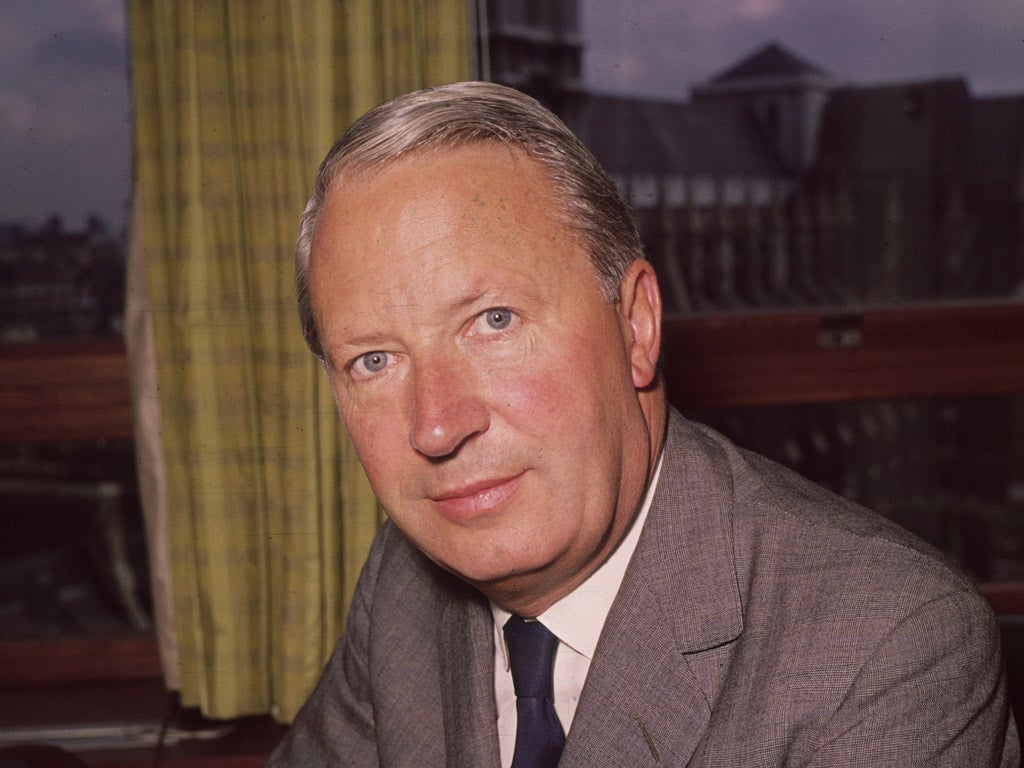The British people never wanted to join the European project in the first place
Did we join the Common Market because we thought it would solve decades of relative economic decline, asks John Rentoul


Your support helps us to tell the story
From reproductive rights to climate change to Big Tech, The Independent is on the ground when the story is developing. Whether it's investigating the financials of Elon Musk's pro-Trump PAC or producing our latest documentary, 'The A Word', which shines a light on the American women fighting for reproductive rights, we know how important it is to parse out the facts from the messaging.
At such a critical moment in US history, we need reporters on the ground. Your donation allows us to keep sending journalists to speak to both sides of the story.
The Independent is trusted by Americans across the entire political spectrum. And unlike many other quality news outlets, we choose not to lock Americans out of our reporting and analysis with paywalls. We believe quality journalism should be available to everyone, paid for by those who can afford it.
Your support makes all the difference.Thank you to all our readers who came to our recent online event, Brexit: what next? You asked some good questions; my colleagues Tom Peck, Kate Devlin and Ben Chu gave some good answers, and I heckled a bit. Although we all struggled somewhat on naming any definite benefits from Brexit.
At one point Ben, our economics guru, gave an interesting long view of the reasons we joined the Common Market in 1973. He said that after decades of relative economic decline, the continent was seen as modern and successful, which was part of the explanation for wanting to be part of it.
This is similar to the thesis propounded by Robert Tombs, in his magnificent single-volume The English and Their History, although he also argues that our relative economic performance wasn’t that bad and that the British ruling class overdid its defeatism.
If that kind of thinking lay behind our joining, I wondered whether Britain’s relative economic success between 1992 and 2008 might have contributed to the Leave vote in the referendum. Although it would be hard to separate that effect from the effect of growth in attracting workers from central Europe, increasing the salience of free movement.
Anyway, this discussion prompted me to go back to one of my treasured possessions, a collection of Gallup opinion poll findings from 1937 to 1975, and look up what people thought about the Common Market when we joined it. I was surprised to discover that people were opposed to joining at the time. In the six months before we joined on 1 January 1973, majorities of between 2 and 15 percentage points were against. The only month in which more people were for than against was January 1973 itself (38 per cent said “we were right to join”, 36 per cent said “wrong”). Thereafter it was opposed by similar margins as before.
Of course, by the time we got to the referendum in 1975, there was a decisive 67 per cent vote to stay in, but I thought it notable that the democratic consent for joining in the first place was so weak. If we joined as a solution for relative economic decline, it would seem – as Tombs suggested – that this was the view of the elite rather than the masses.
It could be argued, I suppose, that Charles de Gaulle was right, and that we never should have joined. I certainly think, looking back, that many of the problems of our relationship with the EU were baked in right at the start. It was a decision about which the British people were unenthusiastic and on which they felt they hadn’t been consulted – a feeling the 1975 referendum never quite put right.
Yours,
John Rentoul
Chief political commentator



Join our commenting forum
Join thought-provoking conversations, follow other Independent readers and see their replies
Comments